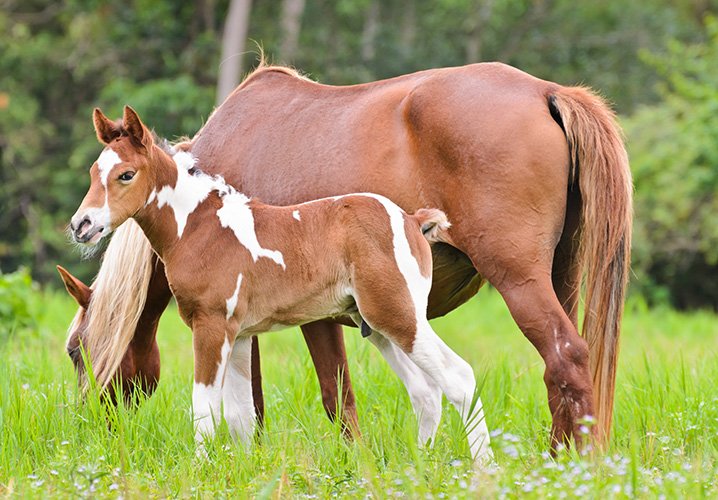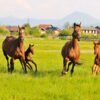- Empty cart.
- Continue Shopping
Nutrition for Young Weanling Horses During Spring in Australia

As spring unfolds in Australia, young weanling horses are entering a critical phase of growth and development. Proper nutrition is vital during this transitional period, as it sets the foundation for their future health, performance, and overall well-being. Understanding the unique dietary needs of these young equines is essential, especially considering the specific challenges that springtime can bring.
Understanding Weanling Nutrition
Weanling horses, typically between 4 and 8 months old, undergo significant physiological changes as they transition from nursing to a solid diet. According to Dr. Jodie Pritchard, a veterinarian specializing in equine health and nutrition, “The nutritional requirements for weanlings are complex, as they need a balance of energy, protein, vitamins, and minerals to support their rapid growth. Mismanagement in this phase can lead to developmental orthopaedic diseases and other health issues.”
Key Nutritional Components
- Energy and Protein: The energy demands of weanlings are high due to their active lifestyle and rapid growth. For optimal development, a protein-rich diet is essential. The recommended protein level for weanlings is typically around 14-16%. Sources of high-quality protein include thoroughbreds or custom-formulated concentrates that contain ingredients like soybean meal and alfalfa.
- Vitamins and Minerals: Essential vitamins and minerals—the building blocks of bone, muscle, and overall health—should be included in their diet. Calcium and phosphorus are particularly crucial during the spring months, as young horses are experiencing skeletal growth. As noted by equine nutritionist Dr. Eleanor Kellon, “A proper Ca:P (calcium to phosphorus) ratio is vital to prevent issues like skeletal deformities. A 2:1 ratio is generally advised.”
- Forage Quality: Spring often brings fresh, lush pastures that can be beneficial for weanlings. However, it is essential to manage this feed source carefully. Young horses may be susceptible to grass founder or laminitis due to rapid growth but also need the fiber to support digestive health. “Always introduce spring grass gradually,” advises Dr. Pritchard, “to allow the horse’s digestive system to adapt and minimize the risk of colic and other metabolic issues.”
- Hydration: Adequate water intake is crucial for weanlings, especially during spring, as environmental temperatures can rise. Access to fresh, clean water should always be available, as it plays a vital role in digestion and overall health.
Formulating a Balanced Diet
Creating a balanced diet for young weanlings involves considering their individual needs based on age, weight, growth rate, and activity level. Many experienced horse owners and breeders consult with equine nutritionists to craft a tailored feeding plan. Taking into account forage quality, concentrated feeds, and supplements can make a significant difference in the health and performance of these young horses.
Use of commercially available feeds designed for growing horses can simplify this process, but continual assessment of weight gain and health condition is essential. Monitoring growth rates and body condition scores will guide any necessary adjustments in their diet.
Additional Considerations
As weanlings grow and enter spring, vaccination and deworming schedules should be carefully managed to ensure their immune systems are bolstered against common ailments. Springtime often brings an uptick in parasites, and young horses are particularly vulnerable.
Additionally, social interaction should not be overlooked; young horses thrive in herds and benefit from the equine social structure. Proper socialization can lead to better mental health, which complements nutritional efforts.
Conclusion
In summary, the nutrition of young weanling horses during the spring in Australia is a multifaceted approach that requires attention to energy, protein, vitamins, minerals, and forage quality. With the right dietary plan and by consulting with expert veterinarians and nutritionists, we can ensure these young equines flourish in this critical growth stage. By investing time in their nutrition, we set the stage for healthy, well-adjusted horses capable of achieving their potential.

